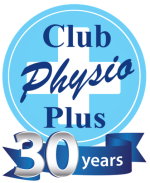OUR SERVICES
We provide high quality treatment to our clients throughout Oakville and Mississauga. Our goal is to help our clients reach their physical potential through the variety of services we offer.
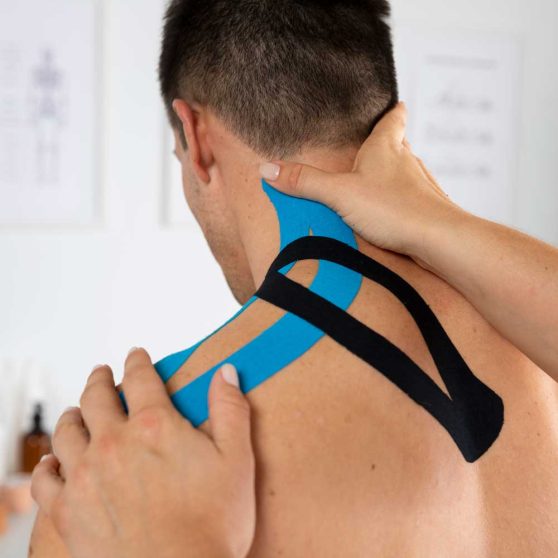
PHYSIOTHERAPY
Physiotherapy is a health care profession which focuses on the prevention and treatment of injury or disease through physical means.
What is Physiotherapy?
A physiotherapist will work as your partner to help you maintain optimal health and well being. Physiotherapists have a detailed understanding of how the body works, and are specially educated to assess and improve movement and function, and relieve pain. Physiotherapists use a comprehensive approach to health care: they evaluate your physical needs and abilities, then develop a personalized program to help you achieve your goals.
Physiotherapists earn university degrees and must pass a national examination before being allowed to practice. They are registered by the College of Physiotherapy under a regulated Provincial Act.
Who can benefit from Physiotherapy?
- Individuals of any age with complaints of pain
- Stiffness
- Weakness
- Tightness
- Headaches
- Spinal pain
- Sports injuries
- Work related injuries
- Motor vehicle accidents
- Overuse injuries
- Degenerative or arthritic changes
- Orthopedic surgeries
- Neurological conditions
- Strokes & many more
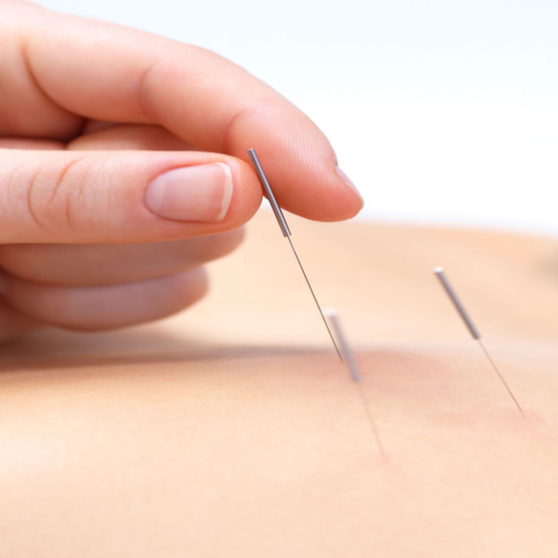
ACUPUNCTURE
Acupuncture originated in China over five thousand years ago. It is based on the belief that health is determined by a balanced flow of qi (also referred to as chi), the vital life energy present in all living organisms. According to acupuncture theory, qi circulates in the body along twelve major pathways, called meridians, each linked to specific internal organs and organ systems.
According to William Michael Cargile, B.S., D.C., F.I.A.C.A., Chairman of Research for the American Association of Acupuncture and Oriental medicine, there are over a thousand acupoints within the meridian system that can be stimulated to enhance the flow of qi. When special needles are inserted into these acupoints (just under the skin), they help correct and re balance the flow of energy and consequently relieve pain and/or restore health.
Acupuncture has been a regulated profession in Ontario since 2012.
Who can benefit from acupuncture?
- Stiffness
- Weakness
- Tightness
- Headaches
- Spinal Pain
- Sports Injuries
- Work Related Injuries
- Motor Vehicle Accidents
- Overuse Injuries
- Degenerative or
- Arthritic Changes
- Orthopaedic Surgeries
- Neurological Conditions
- Strokes & Many More
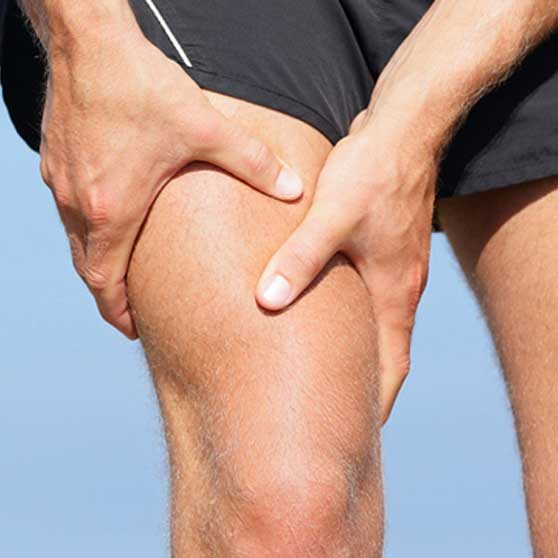
ATHLETIC THERAPY
Athletic Therapy focuses on:
A.T.’s employ many strategies to help active people to avoid or minimize the possibility of injury.
Rehabilitation
Post injury, athletic therapy focuses on preparing active individuals to reestablish their pre-injury lifestyle, through physical reconditioning, hands-on therapy and other rehabilitative techniques.
Who can benefit from Athletic Therapy?
- Active & aggressive rehab for orthopaedic injuries
- Late stage conditioning
- Return to function programs
- Manual therapy techniques
- Injury prevention
- Postural correction
- Musculo-skeletal injuries
- Soft tissue release & many more
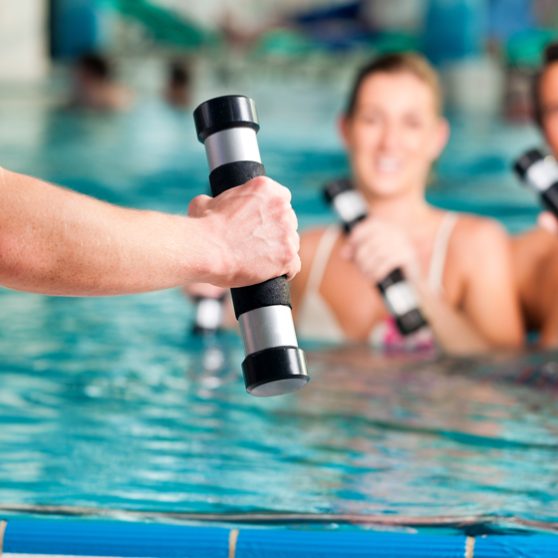
AQUA THERAPY
Aqua Therapy is warm water rehabilitation which focuses on the prevention and treatment of injury or disease through physical means. Water can play an important role in injury rehabilitation. There is no pounding of the body in the water; all of the movements are cushioned by the water. The advantage is that following an injury or surgery, water exercises can begin sooner than traditional physical therapy, thereby cutting down recovery time.
Exercise in general helps to speed healing, and the best place to exercise is in a therapeutic warm water pool, to prevent or minimize the secondary damage that occurs after an injury. This damage includes stiffening, swelling and loss of muscle mass.
Our physiotherapist will work as your partner in the pool. Even if you are unable to walk or stand on land, you will still be able to exercise in the water, either at neck level or in deep water with a floatation device.
Our Physiotherapist has a detailed understanding of how the body works, and is specially educated to assess, improve movement and function.
Who can benefit from Aqua Therapy?
- Individuals of any age with complaints of pain
- Stiffness
- Weakness
- Tightness
- Headaches
- Spinal pain
- Spinal injuries
- Work related injuries
- Motor vehicle accidents
- Overuse injuries
- Degenerative or arthritic changes
- Orthopaedic surgeries
- Neurological conditions
- Strokes & many more
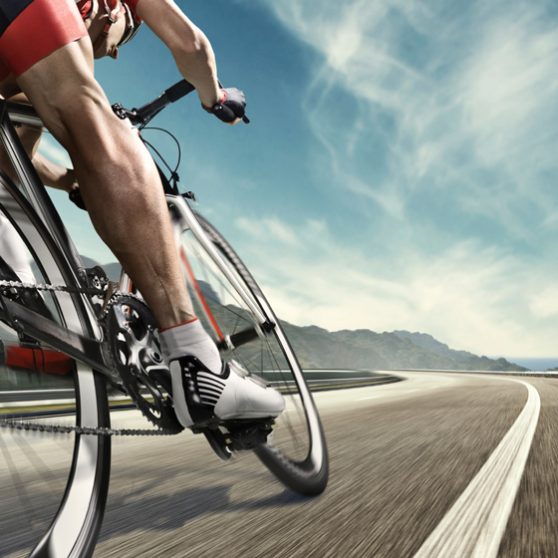
CHIROPRACTOR
Our Chiropractors do many types of treatments, not just adjustments. They also do Active Release Technique (A.R.T.) which is a hands-on technique that specifically finds and releases areas of scar tissue and adhesion (tears in the muscle) thereby getting rid of pain, numbness, loss of mobility and weakness in muscular joints.
Who can benefit from chiropractors?
- Pain
- Weakness
- Repetitive stress injuries
- Plantar fascitis
- Sciatica
- Shoulder pain
- Rotator cuff syndrome
- Tennis elbow
- Muscle strains
- Neck pain
- Back pain
- Carpal tunnel syndrome
- Golfer’s elbow
- Shin splints & many more
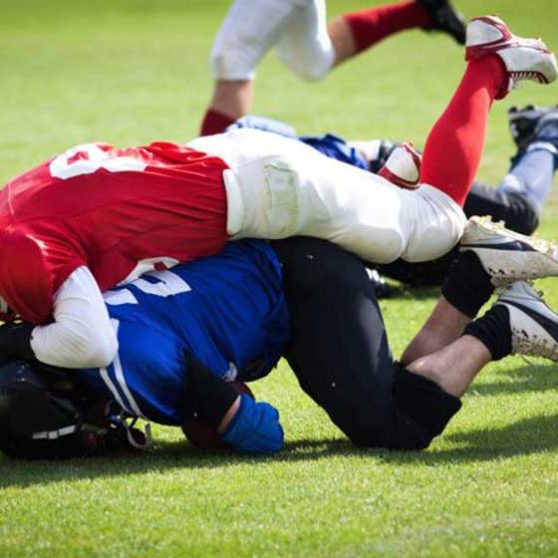
CONCUSSION MANAGEMENT
What is a Concussion?
You don’t have to pass out (lose consciousness) to have a concussion. Some people will have obvious symptoms of a concussion, such as nausea/vomiting or amnesia (forgetting events before or after the injury). Others may experience headaches, sensitivity to light or noise, fatigue, or changes in mood that could be attributed to causes and not always recognized as symptoms related to concussions. With rest and proper education, most people fully recover from a concussion within 7 to 21 days. Guidelines for rest are becoming even stricter in children under age 18 due to the dangers of second impact syndrome and permanent cognitive deficits. There is also increased risk for delayed healing in people with a history of repeated concussions or whiplash injuries, those with ADHD/ADD, Depression, Anxiety, and Migraines. When symptoms persist beyond 21days, the person may be suffering from Post-Concussion Syndrome, which can be assessed and treated by our Athletic Therapists. The protocol for treatment in these varies greatly from one individual to another depending on presentation and symptom, but may include vision retraining, balance/proprioception/coordination exercise, cardiovascular reconditioning, or manual therapy.
- Individualized resting strategies and home instruction
- Specific recommendations around employment/academic demands
- Manual therapy for associated complaints (neck pain, whiplash etc.)
- Visual motor rehabilitation
- Vestibular therapy
- Physical exertion testing and exercise plans for return-to-sport
Once symptom free, it is recommended that each athlete undergo a step-wise process of physical exertion testing. Similar to weight training, athletes recovering from a concussion should not skip to 100% exertion from 0% in a short time frame. Physical exertion testing is important not only for physical re-conditioning, but to guard against symptom relapse and help prevent premature return-to-sport. Our Club Physio Plus professionals can guide you through this process.
Management Strategies of Concussions at Club Physio Plus
Following a concussion, the “sitting in a dark room” approach is only effective for so long. Concussions, like other sports injuries, should be properly managed and rehabilitated. While complete physical and cognitive rest is the mainstay of concussion care, having a health professional guide you through this step-by-step may prove to be invaluable.
Recovering from a concussion can be a difficult and frustrating time. At Club Physio Plus, we understand that each athlete is affected differently and as such, requires individualized care. Management strategies are used to limit the amount of impairment as well as expedite recovery as much as possible. These strategies may include any one or a combination of the following and are case-dependent:
Baseline Testing
Baseline testing is designed for athletes participating in collision or high impact sports where the likelihood of head or neck trauma is high. It consists of an assessment of the range of motion and strength of the neck, balance/proprioception, eye movement/tracking, coordination, and memory testing and may or may not include the iMPACT computerized neurocognitive test. Ideally, baseline testing is done at the beginning of the season, but can be done at any time. The testing should be completed annually as the child’s cognitive function is constantly changing as they get older. The goal of baseline testing is to establish the athlete’s current abilities and any pre-existing deficits in each category. Should the athlete suffer a concussion throughout the year, having the baseline scores will better enable us to determine the athlete’s ability to return to play at the appropriate time.
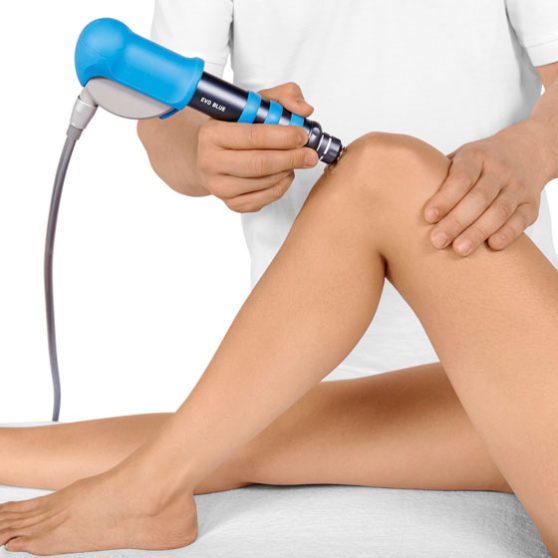
SHOCKWAVE THERAPY
Who can benefit from Shockwave Therapy?
Research is accumulating in the use of SWT & rSWT. Evidence supporting its use has been published in high quality medical journals. The strongest evidence is for shoulder calcific tendinitis and plantar fasciitis, but satisfactory results have been published for other common musculotendinous problems that have “failed to respond” to other conservative treatment. SWT is a non-surgical option with results that match surgical outcomes, and should be considered when other treatment options have failed.
- Plantar Fasciitis, heel spurs & Achilles tendonitis
- Patellar tendonitis, jumper’s knee & shin pain
- Rotator cuff tendonitis & calcification (Shoulder)
- Trochanteric bursitis (Hip)
- Trigger points in muscles
- Stress fractures/Shin Splints, non union’s (delayed bone healing)
- Morton’s Neuroma (Nerve)
Frequently Asked Questions
- An initial assessment must be done and if your condition is appropriate you will be treated with SWT.
- Shockwave Therapy (SWT) is used when all other treatments have been exhausted.
- It is for a Chronic injury that has persisted more than 3 months.
- It is most effective for conditions resulting from connective tissue attachments to bone. See the list above.
- It is usually booked as 3 – 5 treatments 1X/ week for 3 – 5 weeks. Then we wait an additional 3 weeks without treatment to allow for healing to take place.
- SWT is not a “stand alone” treatment. Other treatment will also be done during your treatment time.
Shockwave therapy is a recent development that is used successfully by healthcare providers that specialize in musculoskeletal disorders. As compared to other treatment methods, the advantages are:
- Quickly reduces pain
- No medication is needed
- Avoids surgery and anaesthesia
- No side effects
- No risk of allergies
- Accelerates healing
- Effective for chronic conditions
After only 2-3 sessions, over 80% of patients report a significant reduction in pain.
- 90% improvement for plantar fasciitis (Journal of Orthopedic Research, 2005)
- 91% improvement for calcific tendonitis (Journal of American Medical Association, 2003)
- 77% improvement for tennis elbow (Journal of Orthopedics, 2005)
Treatment sessions are short (10-30 minutes depending on the disorder that is treated) and mildly uncomfortable. In general, 3-5 sessions are necessary at weekly intervals. Ask your therapist if your condition can be treated by Shockwave Therapy and book your treatment sessions today!
You will be issued a receipt for “Physiotherapy, Athletic Therapy or Acupuncture” depending upon the therapist you see. If you have benefits it should be covered, but check with your provider.
Yes, the following:
- Cortisone injection within the last 6 weeks
- Hemophilia or any blood coagulation disorder
- Blood thinner medication ( eg. Heparin, Coumadin)
- Heart or circulatory problems (Thrombosis)
- Growing children (Growth Plates)
- Cancer
- Diabetes
- Pregnancy
- Shockwaves are generally not applied to target areas located above air filled tissue (lungs), large nerves and blood vessels, the spinal column or the head.
The shockwave unit is only available at the ORC location.
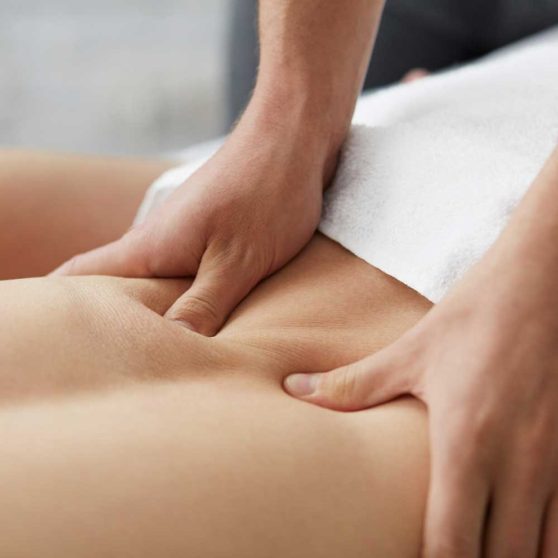
MASSAGE THERAPY
What is Massage Therapy?
Massage therapy refers to the application of various techniques to the muscular structure and soft tissues of the body that include applying fixed or movable pressure, holding, vibration, rocking, friction, kneading and compression using primarily the hands, although massage therapists do use other areas of the body, such as the forearms, elbows or feet. All of the techniques are used for the benefit of the musculoskeletal, circulatory-lymphatic, nervous, and other systems of the body. Massage therapy positively influences the overall health and well-being of the client.
Benefits of Massage Therapy
- Relaxes the whole body
- Loosens tight muscles
- Relieves tired and aching muscles
- Increases flexibility & range of motion
- Diminishes chronic pain
- Calms the nervous system
- Lowers blood pressure
- Lowers heart rate
- Enhances skin tone
- Assists in recovery from injuries
- Strengthens the immune system
- Reduces tension headaches
- Reduces mental stress
- Improves concentration
- Promotes restful sleep
- Aids in mental relaxation
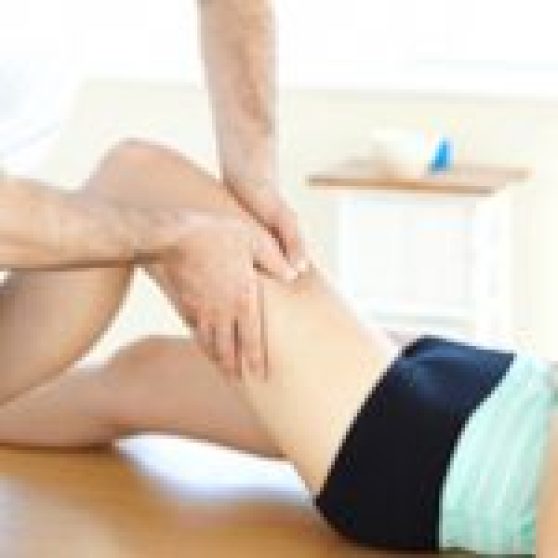
MANUAL LYMPHATIC DRAINAGE
What is Manual Lymphatic Drainage?
Manual lymphatic drainage (MLD) massage is a kind of massage specifically designed to manage the lymph system and any associated difficulties or deficiencies.
The massage consists of special techniques involving repetitive and rhythmical skin stretching movements to promote the lymphatic fluid to travel from swollen areas towards areas that have the fluid draining well. This is often referred to as “decongesting”.
This massage must start in areas that are not impacted by swelling. Typically, the treatment begins at the neck to help prepare the working lymph collectors for the influx of fluid from the affected areas. The basis of this stems from a physics concept called “thixotropy” and an induction of a suction effect. The goal is to decrease the thickness of the fluid where it has collected, and promote the lymphatic fluid to resume its natural flow through open lymph vessels to the lymph collectors and nodes.
MLD is not suitable for everyone. As such, it is recommended that treatment be done only by certified therapists. The designation usually assigned to certified therapists is called Complex Decongestive Therapist (CDT).
The Lymphatic System
- It is made up of lymph fluid, lymph nodes and lymph vessels.
- Is where much of the body’s defence against disease and infection is located.
- Lymph fluid contains white blood cells that help to fight infection.
- Lymph nodes work to block infection by filtering out waste and germs.
- Lymph vessels are the transit system that lymph fluid travels along.
- When the lymphatic system functions well, it helps to keep your body healthy.
What conditions can benefit from Manual Lymphatic Drainage?
- Swelling and pain from injury (sprains, fractures, etc.)
- Headaches, migraines
- Constipation
- Arthritis
- Pre and post surgical pain and swelling
- Scaring
- Sinusitis
- Bronchitis
- Burns
- Primary and secondary lymphedema
- Pre and post partum swelling
- Cancer management
- Dental surgeries
- Whiplash
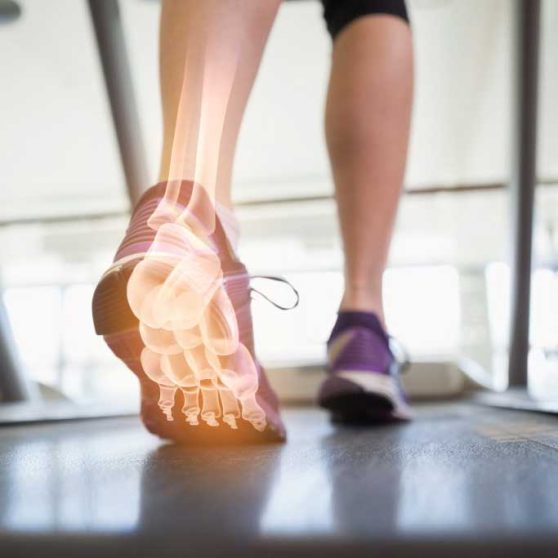
ORTHOTICS
Orthotics are more than just a heel pad or shoe insert you might find at an athletic store. They’re highly customized devices designed specifically for your feet to improve comfort, support, and performance.
Club Physio Plus is proud to offer orthotic assessments and fittings with Dr. Joey Villella. Dr. Villella is available Monday and Thursday afternoons and evenings at the clinic to provide gait analysis and personalized orthotic solutions.
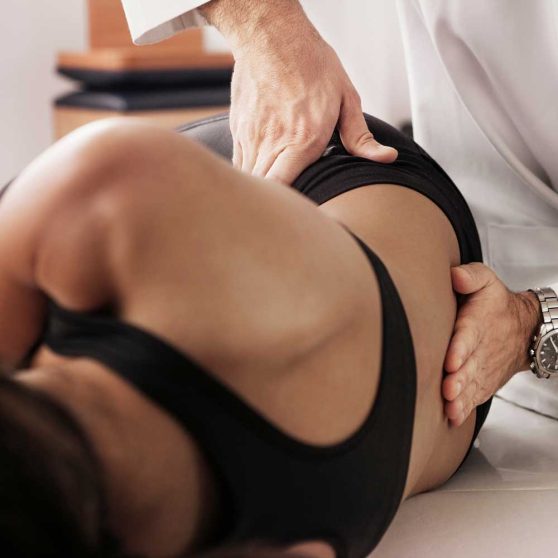
OSTEOPATHY
What is Osteopathy?
Osteopathy uses very precise, gentle manipulative techniques to treat the restrictions in tissues which prevent the various parts of the body from fulfilling their natural functions. The objective of the practice of Osteopathy is to restore mobility to the different systems of the body (musculo-skeletal, circulatory, digestive, pulmonary and nervous systems) thus improving the regulation and interactions of these systems.
Osteopathy was established in Canada in 1981.
Who can benefit from Osteopathy?
Individuals of any age with complaints of pain, weakness, stiffness or tightness may benefit from Osteopathy treatment. Symptoms may be a result of injury, accident, repetitive strains, underuse or misuse, degenerative or arthritic changes, pregnancy and childbirth or following surgery or dental work.
- Head trauma
- Headaches
- Migraines
- Fibromyalga
- Motor vehicle accidents
- Chronic fatigue syndrome
- Systemic or organ dysfunction
- Neck and back injuries
- Learning and behavioural problems
- Pain associated with pregnancy
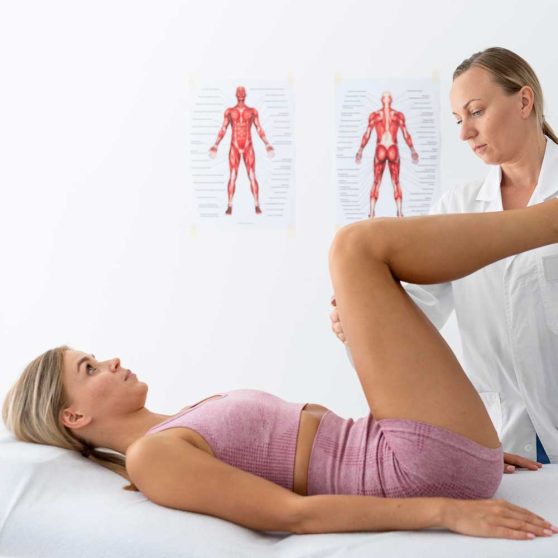
PELVIC HEALTH THERAPY
Many patients with urinary, bowel and/or sexual symptoms and/or pelvic pain often have dysfunctional pelvic floor muscles, specifically a group of muscles called the Levator Ani and obturator Internus. They are responsible for bladder and bowel control as well as sexual functioning. Very often, when these muscles are tight, they can cause pain and or dysfunction of the bladder, bowel and genitals. Physiotherapy is a very important part of a multi-disciplinary medical intervention.
There are many causes of pelvic pain and dysfunction. In general problems can arise from structural or somatic abnormalities, visceral diseased or dysfunction, activity related injuries or physical trauma. Many men and women are silently suffering needlessly, avoiding activities like exercising and socializing. Treatments are available and customized based on the individual needs of the patient.
What is the treatment?
Treatment sessions are generally 30 minutes in length, 1-2 times per week. A treatment session may include some or all of the following:
- Connective tissue manipulation
- Neural mobilization
- Myofascial trigger point release
- Neuromuscular re-education
- Sacro-iliac joint/lumbar spine mobilization
- Home excercise program
- Pelvic floor stretching, connective tissue manipulation, neural mobilization
- Family training
- Patient education
Who can benefit from Pelvic Health Therapy?
Pelvic Health Therapy is being used to help patients with the following conditions:
- Urinary Incontinence
- Pelvic Floor Prolapse
- Hysterectomy
- Heavy Periods
- Fibroids
- Symptoms post C-section and pelvic surgery
- Pelvic/vaginal pain
- Sexual pain
- Post Prostate surgery incontinence
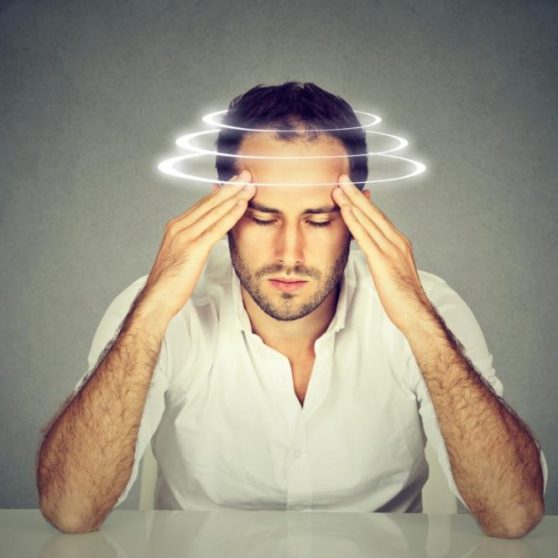
VESTIBULAR THERAPY
Vestibular rehabilitation is a type of physiotherapy specifically designed to treat patients suffering from vertigo, dizziness, nausea and loss of balance. It involves the retraining of the vestibular (inner ear) and vision (eye) systems. Vestibular issues can result from a variety of problems, including inner ear issues, infection, head trauma, brain related issues, diseases, medication Meniere’s Disease and more. Benign Paroxsymal Positional Vertigo (BBPV) is the most common cause of vertigo.
Evidence has shown that vestibular rehabilitation therapy can be effective in improving symptoms relating to many vestibular disorders including concussions. Treatment methods may involve manual maneuver techniques, manual therapy and practicing specific exercises for a customized re-training program.
Who can benefit from Vestibular Therapy?
Individuals of any age with complaints of:
- Dizziness
- Balance Issues
- Blurred vision with head movements
- Headaches
- Vertigo
- Motor Vehicle Accidents
- Neck tightness
- Frequent falls
- Spinning
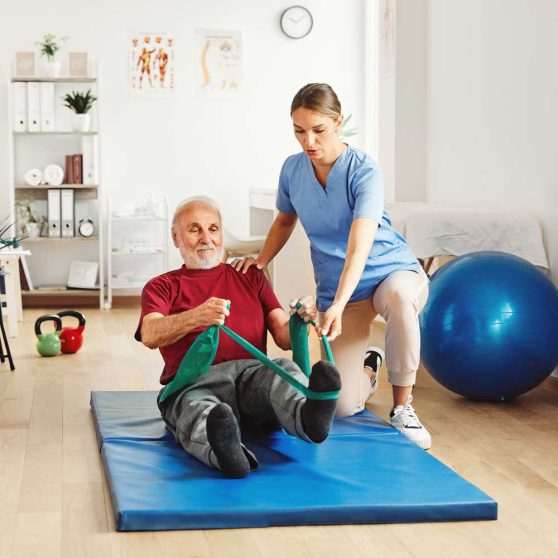
IN HOME VISITS
Patients who cannot travel to the clinic will be provided with Physiotherapy and Massage services such as manual therapy, exercise, ergonomic assessment, post-operative treatment, acupuncture and much more.
What are "In Home Visits"?
Our Home care team can provide one on one assessment and treatment in your home or retirement home.
How it works
- Treatments are a slightly higher price than our in-clinic prices due to travel times and costs.
Payment can be phoned into the clinic or e-transferred. - Intake and consent forms can be filled in at home and emailed back to the clinic.
What conditions are treated?
Individuals of any age with complaints of pain, stiffness or tightness may benefit from a Clinical Somatics session. Somatics most effectively treats chronic musculoskeletal contraction that results from stress, trauma, and repetitive movement. These conditions include:
- Post Operative Surgeries such as Acute Total Hip Replacement
- Neurological conditions such as a stroke
- Acute conditions such as Post Partum
- Acute pain
